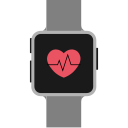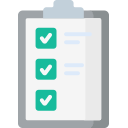Cetirizine

Cetirizine is used to treat symptoms which are caused by allergies. It is an anti-histamine which can be used to treat hay fever, red eyes, itchy eyes, skin reactions (eczema, urticaria) and reactions to bites/stings. It can be used for other reactions such as food allergies but is most commonly used to treat hay fever.

Like any other prescription medication you must consult a doctor before using it. PrivateDoc offers a confidential free consultation service that may result in you receiving a prescription for Cetirizine if it is deemed appropriate and can prescribed safely.

Complete a 100% free and secure consultation to explore your treatment options. How our online prescription consultation works.
What is Cetirizine?
Cetirizine is used to treat symptoms which are caused by allergies. It is an anti-histamine which can be used to treat hay fever, red eyes, itchy eyes, skin reactions (eczema, urticaria) and reactions to bites/stings. It can be used for other reactions such as food allergies but is most commonly used to treat hay fever.
It is classed as non-drowsy, which means it is less likely to make you feel sleepy after taking the tablet, however all anti-histamines have to potential to cause drowsiness.
It can be purchased as the generic drug or as well-known brands such as Zirtek or Piriteze.
How much does Cetirizine cost?

Packs and prices
Who can and cannot take Cetirizine?
Cetirizine is generally safe and can be taken by adults and children over the age of 6. Children over the age of 2 can also take cetirizine but this would be via the liquid preparation as the dose would require to be reduced.
If you have any of the following, then you shouldn't take Cetirizine -
- If you have a confirmed or suspected allergic reaction to Cetirizine or any of the tablet's ingredients.
- If you have a confirmed allergy to E218 & E216.
- If you are intolerant to certain sugars (e.g. lactose, sorbitol).
- If you have a confirmed diagnosis of renal impairment (check with your prescriber - depending on degree of impairment a reduced dose may still be suitable).
- If you have a medical condition which can result in fits, e.g. epilepsy.
- Capsules can contain soya oil - do not take if you are allergic to peanuts or soya.
Pregnancy & Breastfeeding
Cetirizine is not known to be harmful and therefore can be taken during pregnancy. However, most manufacturer's would advise avoiding the use of Cetirizine during pregnancy because of the limited studies that have been conducted on pregnant females. A similar drug known as loratadine is usually preferred in pregnant females as there is more data available to ascertain that it is safer to take.
Cetirizine is safe to use in breastfeeding mothers as the amount present in breast milk is very small.
As with all cases, if you are pregnant, think you may be pregnant and/or are breastfeeding, you should check with your GP if it is safe to start any new medication.
How to take Cetirizine?
You should take Cetirizine exactly as prescribed by your clinician.
The usual dose for adults is 10mg daily (one tablet). Doses may need calculating if taking a liquid preparation.
Doses will need to be reduced in patients with renal impairment (see your GP before taking this medication if you have ever been told your kidney function is reduced).
Doses for children can be split up to be given twice daily. These should be spaced out evenly by leaving at least 10 to 12 hours between doses.
The medication does not need to be taken with food or without food but should be taken with a glass of water and swallowed whole without chewing the tablet/capsule.
The medication can be taken daily to prevent the symptoms of hay fever appearing. Alternatively, it can be taken on a when required basis only when symptoms present themselves. If you take it regularly and you forget to take a dose at the normal time, then take it as soon as you remember unless it is getting close to when your next dose would be due. Never take a double dose.
Get Started How much does Cetirizine cost?What are the side effects of Cetirizine?
Like with all medication Cetirizine has the potential to cause some unwanted side effects. Common side effects can include -
- Drowsiness, feeling dizzy, feeling tired, feeling sleepy
- Headache
- Gastrointestinal issues - nausea, stomach pains, diarrhoea
- Dry mouth, sore throat or cold like symptoms of the nose
- Skin rash
If the symptoms do not settle, then you should stop taking the medication and contact your GP.
It is rare to develop a serious allergic reaction to Cetirizine. A full list of side effects can be seen by accessing the links below.
Useful links
NHS website for easy to access information on Cetirizine
Complete list of the product characteristics
Information on what is hay fever and its symptoms
More information can also be accessed by reading the patient information leaflet






